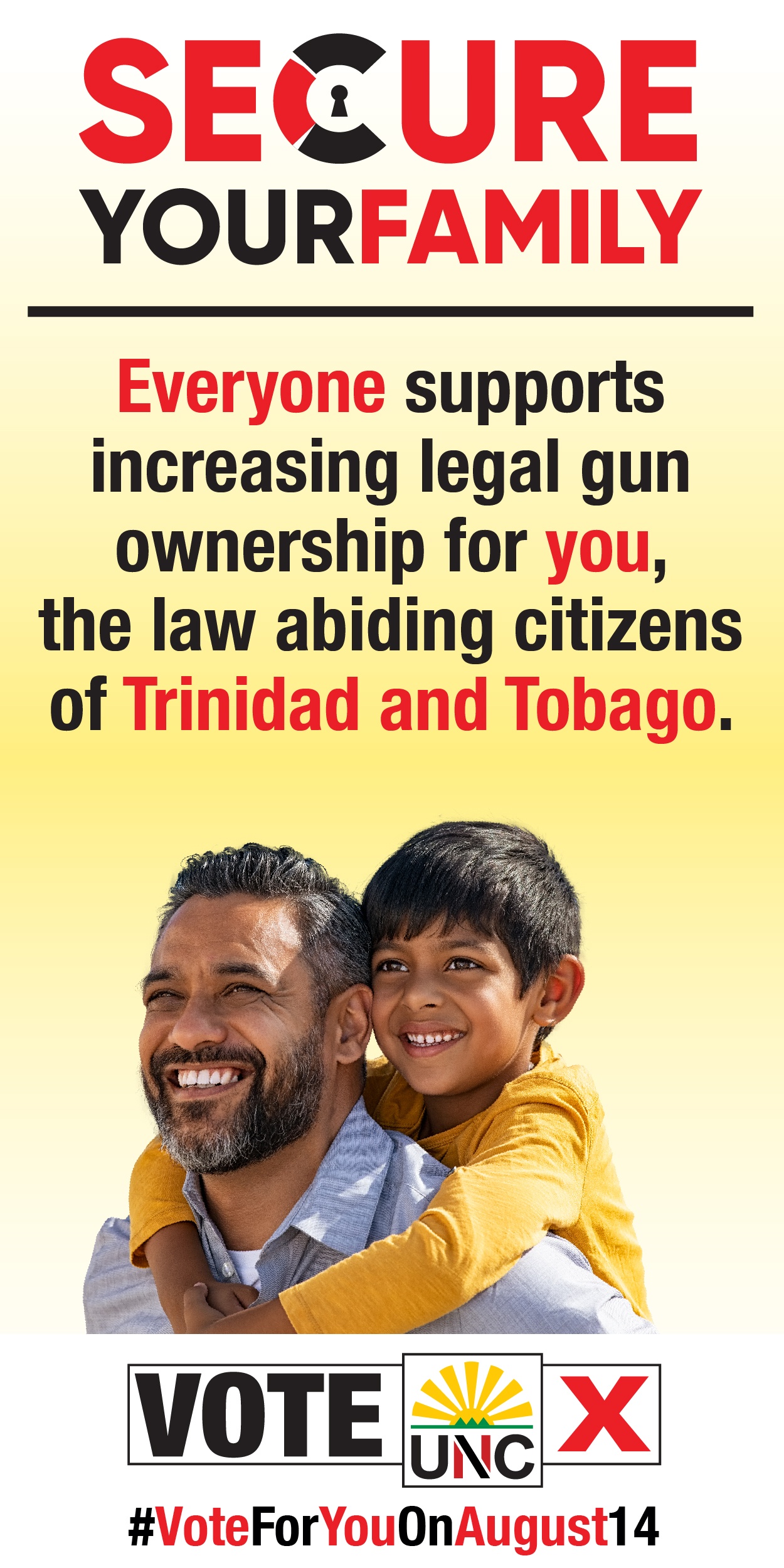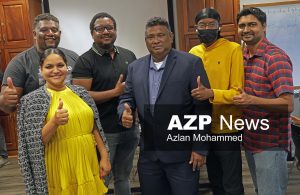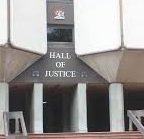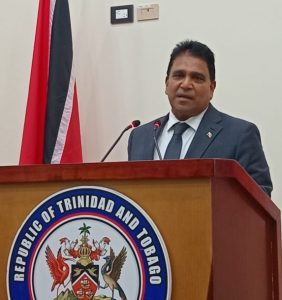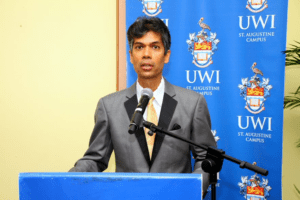
SOME of us are aware of the historic linkages of Nelson Island to indentureship or for detainees during the World War and Black Power.
Three years ago, my good friend, Nizam Khan, gave me a copy of a souvenir brochure of a Muslim Youth Camp that was held 55 years ago on Nelson Island during December 28, 1968 to January 5, 1969. Nizam knew I liked history and was interested in religion.
The Camp was organised by the Muslim Missionaries’ Guild of the Caribbean and South America. Prior to this event, in 1968, the Guild held a conference in Georgetown, Guyana. At this conference, the delegation of Guyanese Muslims moved a historic resolution for the creation of the Youth Section of Islamic Missionaries Guild of the Caribbean and South America.
It was at this conference in 1968 that the Youth Section initiated the move for the decision to have the creation of the first Muslim Youth Corps Leadership Training Camp at Nelson Island. The Camp was formally opened by Muriel Donawa McDavidson Ali, who was the Parliamentary Secretary of Planning and development in the PNM government.
The camp’s Public Relations Officer was Mohammed ‘Doc’ Khan and the camp’s director was Haji Adbel Hameed Ben Tchnikou, an Algerian Muslim who was a representative of the Muslim Students Association of the USA and Canada.
Mumtaz Ali noted Tchnikou’s leadership quality and energy as “… he spared no pains in ensuring the existence at all times among us, an atmosphere of spirituality and a genuine feeling of brotherliness.”
Among the visitors to the camp were Dr Yacoob Syne (former President of the Anjuman Sunnatul Jamaat), Nasir Khan (President General of the Islamic Missionaries Guild of the Caribbean and South America), Haji Gulam Padia (of the Tablig Jamaat of South Africa) Justice Noor Hassanali, Kamaludin Mohammed (Minister of West Indian Affairs) and Joan Kazim (President of the Ladies Section of the Missionaries Guild). Some of these visitors delivered lectures to the campers.
One of the outstanding personalities was Gulam Rasul Alladin, the delegate from Paramaribo in Suriname, (a student of Maulana Noorsani Sahib) participated in the campfires, recited from the Holy Quran and sang Qaseedas. Gulam was 27-years-old and an Assistant Imam.
Wahid Ali, one of the attendees of the camp, praised Gulam’s ‘spiritual leadership’ and ‘deep sense of devotion to his work’. Gulam penned an article in the brochure and noted, “The highest degree of Dhikr or remembrance of Allah is that a Believer should be entirely devoted to Allah, and should never forget Him.”
The 52 Muslim youths were not only exposed to Islam but were also involved in recreational activities as diving, swimming, table tennis and draughts. Salaat or prayer was prominent in the camp.
The early morning Fajir and the five daily prayers were part of the lives of the campers. One of the campers, Farook Adam, revealed a positive aspect of the camp, “… before the camp very few of the campers used to observe their Salaat regularly, at the end of the camp the habit of Salaat was firmly established in the hearts of most of them….”
Another reflected on the camp, “During our short stay on Nelson Island we learnt to love Islam more than ever before. We saw Islam in its proper perspective and we came face to face with the fact that mankind is heavily indebted to the world of Islam for its immense contribution especially in the fields of science, mathematics, medicine and good government.”
Paid political ad

After reading the brochure of an event held more than 50 year ago, it made me realise that maybe there should be similar camps for boys, teenagers and young adults in T&T. This could possibly be a solution to the involvement of some delinquent males in social problems as crime.
Dr Jerome Teelucksingh is an activist. He initiated the inaugural observances of International Day for the Elimination of Violence Against Men and Boys (January 31) and World Day of the Boy Child (May 16). He has made academic presentations at tertiary institutions including Harvard University and Oxford University.
See other articles by Dr Jerome Teelucksingh on AZP News:
Tobago’s Working Class in the 1920s, 1930s
Are Humble Caring Fathers Champions?
Influencing West Indian Masculinity
Defining Caribbean Masculinity
Is Monogamy Encouraged in the Caribbean
Naps Girls: From Humble Beginnings to Excellence
US Media Creates Cultural Dependency in the Caribbean
Bloodless Revolution to Save Lives in Developing Countries
The Need for a Social and Moral Revolution
The Law of Supply and Demand in Developing Countries
End the Dependency for Developing Countries
T&T Carnival and the Emperor’s New Clothes
The Influence of Labour on Caribbean Integration
The illusion of political Unity
Presbyterians in Trinidad: Humble Missionaries, Local Workers
Religious Plurality: Curse or Blessing
Caribbean Youth Need Optimism, Patriotism
Rethinking Identities in Caribbean, Latin America
November 19: All Inclusive International Men’s Day
Should International Agencies be Blamed for Unemployment
A Need to Observe Word Unemployment Day
An Ideology for the Trade Union Movement
The Man who Couldn’t be Prime Minister
Social Outburst vs Social Revolution
Challenges of the Men’s Movement
If George Floyd was Denied Parole
The Meaning of Indian Arrival Day in T&T
International Men’s Day – A Way of Life
Wounds that cause school violence
May Day: A Time for Solidarity, Strength
Who Coined the Term ‘Black Power’
The illusion of political Unity
Presbyterians in Trinidad: Humble Missionaries, Local Workers
Religious Plurality: Curse or Blessing
Caribbean Youth Need Optimism, Patriotism
Rethinking Identities in Caribbean, Latin America
November 19: All Inclusive International Men’s Day
Should International Agencies be Blamed for Unemployment
A Need to Observe Word Unemployment Day
An Ideology for the Trade Union Movement
The Man who Couldn’t be Prime Minister
Social Outburst vs Social Revolution
Challenges of the Men’s Movement
If George Floyd was Denied Parole
The Meaning of Indian Arrival Day in T&T
International Men’s Day – A Way of Life
Wounds that cause school violence
May Day: A Time for Solidarity, Strength
Who Coined the Term ‘Black Power’
![]()




